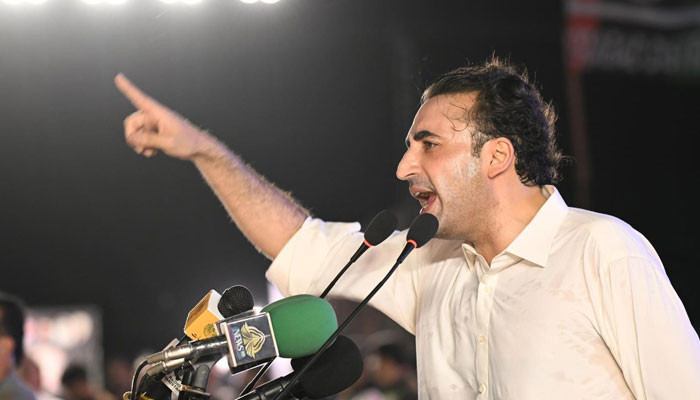Bilawal Urges Dialogue Between Pakistan and India Amid Tensions
ISLAMABAD/SUKKUR: Amidst the existing strain between Islamabad and New Delhi, Bilawal Bhutto-Zardari, the Chairman of the Pakistan Peoples Party (PPP) and former foreign minister, has called for both nations to engage in discussions to resolve their conflicts.
During a television interview, Bilawal criticized New Delhi’s stance on negotiations, stating that while the Pakistani government extended an offer for talks, it was turned down by India.
The PPP leader’s statement is made in light of increased diplomatic tensions following an incident in the Pahalgam region of Indian Illegally Occupied Jammu and Kashmir (IOJK), which resulted in multiple casualties. New Delhi has blamed Islamabad for backing cross-border terrorism, a claim that Islamabad strongly denies.
Subsequently, India has reduced its diplomatic presence in Islamabad and suspended the Indus Waters Treaty. Pakistan has reciprocated with similar diplomatic actions and closed its airspace to Indian airlines.
Prime Minister Shehbaz Sharif, while condemning the attack, has offered cooperation in an impartial and credible inquiry into the matter.
With Defence Minister Khawaja Asif suggesting the escalation might lead to a broader conflict, the United Nations has appealed to both Pakistan and India to exercise utmost restraint to prevent further deterioration of the situation.
Echoing Prime Minister Shehbaz’s sentiments, Bilawal emphasized that the global community has voiced concerns over terrorist events, and Pakistani leaders, including the president and prime minister, have denounced terrorism.
The politician also addressed India’s actions regarding Pakistan’s water supply, stating that such aggressive measures to block water have not been seen before. He recalled that during his tenure as foreign minister, India attempted to challenge the Indus Waters Treaty but was unsuccessful due to the weakness of their case.
Bilawal acknowledged that conflicts occur globally but stressed the existence of international laws that prohibit the obstruction of water flow, even during wartime. He argued that India’s aggressive action exposes their targeting of innocent Pakistanis.
He affirmed Pakistan’s response to India’s actions and expressed full support for the government’s decisions. He cautioned that if India terminates the Indus Waters Treaty, Pakistan would respond accordingly.
The former foreign minister stated the importance of maintaining agreements like the Shimla Agreement and the Indus Waters Treaty, highlighting the weakness of India’s position on issues such as occupied Kashmir and terrorism in Pakistan.
Bilawal emphasized that as nuclear powers, Pakistan and India would face global efforts to prevent further escalation, noting India’s admission of security lapses during an All Parties Conference.



Comments (0)
No comments yet. Be the first to comment!
Leave a Comment